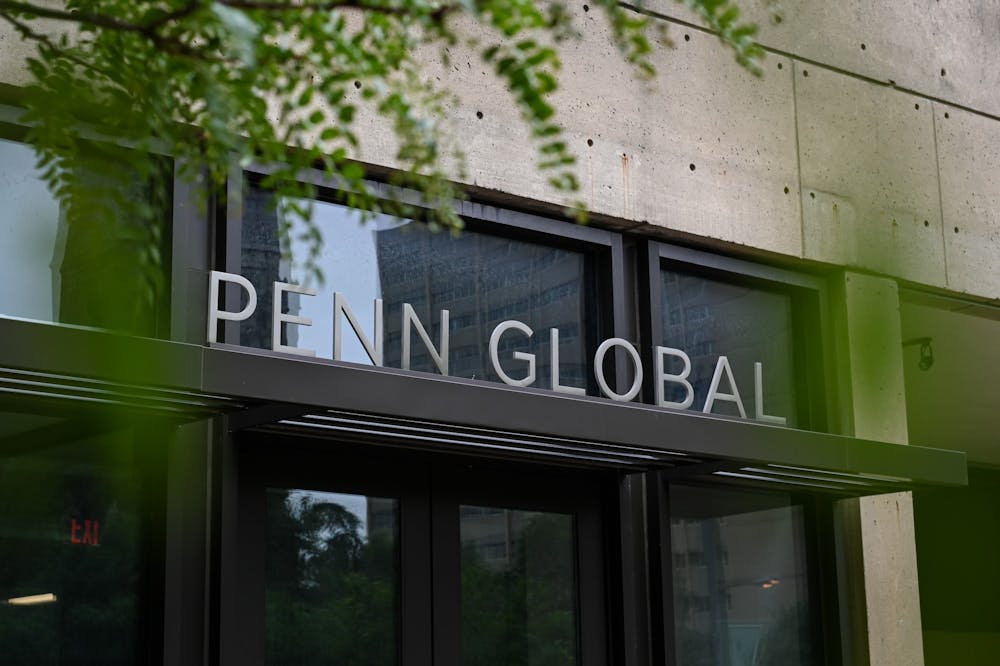After completing the first global seminar to travel internationally since spring 2020, half of the seminar members tested positive for COVID-19 and were forced to quarantine in place.
The class, PHIL 226: Philosophy of Biology, which was led by Philosophy department chair Michael Weisberg, landed in the Galápagos Islands on Dec. 31 with a course teaching assistant and fourteen undergraduate students. After a 10-day trip — which College junior Arnav Lal said was "transformational" — the group was scheduled to return to Philadelphia on Jan. 11. However, when the class arrived in mainland Ecuador, eight group members tested positive for COVID-19, and completed their quarantine in Guayaquil while the remaining seven returned to the United States.
Nigel Cossar, the executive director of Penn Abroad, said that his office worked with Weisberg, the students, and their emergency contacts to develop contingency plans even before the class’s departure in case students tested positive while overseas.
“We kicked into gear straightaway,” Cossar said. “We made sure we had a local partner who continued to support the group for the five days [in quarantine]. We had that partner on the ground going out and getting groceries and snacks and water and delivering it to their rooms. We had meals being delivered through the hotel… So we made sure there were various resources and support for those students while they were quarantined.”
Weisberg added that the connections he had in Galápagos assured Penn Abroad that they could control potential COVID-19 outbreaks.
“Whatever contingency plans need to be made, this is a good trip for that, because we have great connections. And in that respect, I think that paid off. There were, as you know, some complications in the trip, but it didn't turn into a crisis of any kind,” Weisberg said.
Despite the complications, Cossar said the course was “a huge success,” noting that COVID-19 risks will be an inherent part of international travel as long as the pandemic continues.
Weisberg, who leads the Galapagos Education and Research Alliance, has taught the Penn Global Seminars three times — two of which culminated in a trip to the islands. This time, the group lived on a boat, visited national parks, and met locals.
Although students testing positive was unanticipated, Weisberg said, the group focused on the unexpected benefits of quarantine.
“It was not the norm, but it was an incredible trip,” Weisberg added. “[Quarantine in the hotel] was an interesting bonding experience. I don't think students often have a chance to bond with a professor like that. I think we made the best of a complicated situation.”
Lal said that although he did not test positive on the trip, he felt that his classmates’ initial concerns about accessing food, Wi-Fi, and basic necessities were handled “really, really well.”
“I don't think anyone had worries about those things, which is really nice to hear,” Lal said.
Lal said that he was immediately drawn to the course content and the international travel component, and added that the highlight of his trip was being able to snorkel and interact with the wildlife.
“Being a part of nature was an opportunity that is not only unique, but it's just a special moment to have,” Lal said.
Students met with the Indigenous people who inhabit the islands, and observed how human activity interacts with ecology on Galápagos. Both before and during the trip, Lal worked with his peers to craft a policy proposal as their final research project on developing a model for less intrusive tourism on the islands.
“What we really did during the trip was think about the potential ways we could actually implement [the model] if it were to be a reality,” Lal said.
This semester, there are eight global seminar courses that are set to travel either over spring break or in May. Classes will travel to Greece, Mongolia, India, Australia, Iceland, France, and Japan. Of those destinations, Cossar said Japan is the only country whose quarantine policies may pose a challenge to student travel.
“That all said, it's still fairly early February, and a lot can change. Omicron is kind of moving its way through countries in the world,” Cossar said.
As Penn Abroad plans for the next series of global seminars, Cossar said his biggest takeaway from the Galápagos trip was the importance of “working collaboratively across campus.”
“We couldn't have done this on our own just through Penn Global. We needed the support of CITRA, risk management, and student health. There are so many offices that made it possible,” Cossar said.









